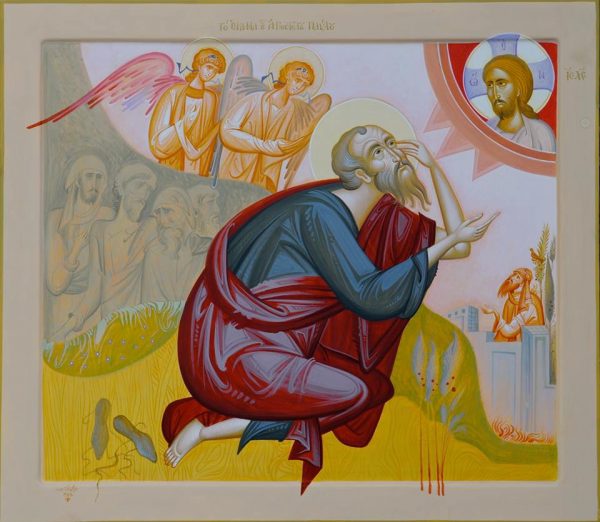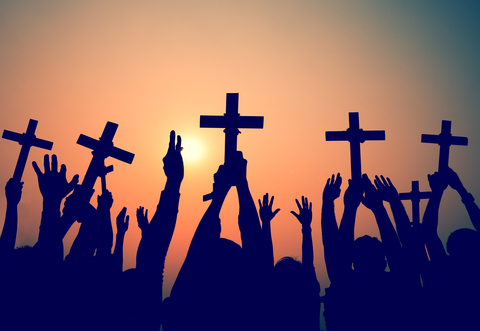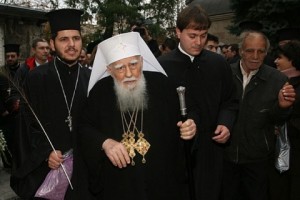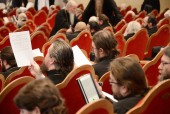It was only through weakness that St. Paul could show the strength of the gospel message.
—
We happen to be in that season that only comes once every four years: the presidential political season.
Along with this season comes heated debates, political enthusiasm for your candidate, and overflowing patriotism.
The pinnacle of the political season – outside of Election Day – is, perhaps, the debates themselves.
In the debates, each candidate has the opportunity to argue his or her plan for America’s future.
But even more, the candidate has the opportunity to show that they are “presidential.”
What exactly, though, is being “presidential”?
Well, it’s many things:
1. Good posture
2. Remaining cool under pressure
3. Articulate speech
4. Reasoned arguments
5. Good stage presence
All these things go into being “presidential.” In other words, we are looking for far more than book knowledge. We are looking for a commanding presence. It’s all about character.
St. Paul had lots of character – but not what you think!
Paul had character too. But almost everything he exhibited is the opposite of what we look for in a good leader – he was weak!
Paul’s weak character is what demonstrates the transcendent power of the Gospel, the good news that Christ is resurrected from the dead and grace abounds.
We are all familiar with the basics of Paul’s story.
He’s the murder turned saint. After starting his career off by persecuting Christians, he is confronted by Christ on the road to Damascus.

St. Paul by George Kordis
It’s a life changing experience that eventually leads him to be one of the greatest evangelists Christianity has ever seen. In fact, Paul’s teachings will set the stage for Christian theology.
But despite these accomplishments, he has one devastation after another.
Five times I have received at the hands of the Judeans the forty lashes less one. Three times I have been beaten with rods; once I was stoned. Three times I have been shipwrecked; a night and a day I have been adrift at sea; on frequent journeys, in danger from rivers, danger from robbers, danger from my own people, danger from Gentiles, danger in the city, danger in the wilderness, danger at sea, danger from false brethren; in toil and hardship, through many a sleepless night, in hunger and thirst, often without food, in cold and exposure. And, apart from other things, there is the daily pressure upon me of my anxiety for all the churches. Who is weak, and I am not weak? (2 Corinthians 11:24-29a Edited RSV)
If anyone would seem to be unsuccessful, it would seem to be Paul.
Paul’s character is as far from commanding as one could get.
Why would anyone listen to his message about Jesus being the Son of God, the messiah?
In fact, even Aristotle, in his Rhetoric, says that a man must have strong character in order to be persuasive (1.2).
Yet, for St. Paul, it is this weakness that demonstrates that God is in control.
Through weakness, God rules
Paul argument starts by simply saying,
But we have this treasure in earthen vessels, to show that the transcendent power belongs to God and not to us. (2 Corinthians 4:7 RSV)
In the ancient world, it was common to store precious jewels in pots made from clay. A primitive safe, if you will.
Of course in this case, the earthen vessels is a metaphor for us and our bodies. Bodies that breakdown, get sick, and, eventually, die.
The treasure we carry is the Gospel, handed down from apostle to bishop, from bishop to priest, from priest to you, and from you to the entire world.
Paul’s argument is that the power of the Gospel is in the message itself, not the one who bears the message.
His proof?
Himself!
Look at how weak he is! In other words, there’s nothing about how Paul preaches, or in his mannerism, that makes the Gospel powerful.
We are afflicted in every way, but not crushed; perplexed, but not driven to despair; persecuted, but not forsaken; struck down, but not destroyed; (2 Corinthians 4:8-9 RSV)
The power is the message itself.
The Orthodox Church is an earthen vessel
In fact, all through history, the Orthodox Church has shown itself to be nothing but an earthen vessel.
Hardship after hardship has afflicted us.
1. The Romans, in the great Diocletian persecution, persecuted us.
2. Great heresies have threatened to tear us apart – Gnostics, Nestorians, and Monophysites.
3. Orthodox peoples faced great threats from the Persians and then the Ottomans.
4. In modern times, Orthodox peoples faced the threat of Communism.
5. Now, in our own time, we face the threat of secularism, which takes our children away.
Even in our own community, we are afflicted.
We face many odds, just like St. Paul and just like the early church: small numbers, a collapsed church building, and a secular world around us.
But, like Paul, it shows that our treasure isn’t the bricks and mortar we occupy, but the good news of Christ’s victory, trampling down death by death!
Faith in Christ’s victory keeps us strong
When you look back at all of Paul’s trials, all the obstacles the Orthodox Church as faced over its 2,000-year history, or all the hurdles we face, you can’t help but wonder: what kept them going? What keeps us going?
The answer?
It’s the same for us as it was for Paul.
We are…always carrying in the body the death of Jesus, so that the life of Jesus may also be manifested in our bodies. For while we live we are always being given up to death for Jesus’ sake, so that the life of Jesus may be manifested in our mortal flesh. So death is at work in us, but life in you. Since we have the same spirit of faith as he had who wrote, “I believed, and so I spoke,” we too believe, and so we speak, knowing that he who raised the Lord Jesus will raise us also with Jesus and bring us with you into his presence. For it is all for your sake, so that as grace extends to more and more people it may increase thanksgiving, to the glory of God. (2 Corinthians 4:10-15 RSV)
What keeps us going?
It’s our faith in Christ’s victory.
It’s our faith that our struggles are a type of death that gives us life.
It’s our faith that tells us that we will be raised from the dead.
It’s our faith in Christ that keeps us going.
St. Paul isn’t presidential, but he’s godly
So, St. Paul’s presence may not meet our standards for being “presidential.”
And we, like St. Paul, face many challenges that cause us to suffer.
But glory to God, our message isn’t our presence but the good news of Jesus Christ!




















